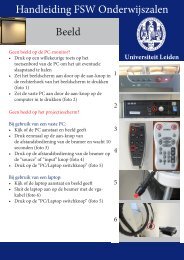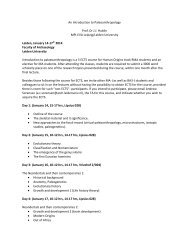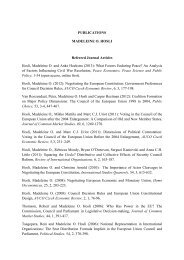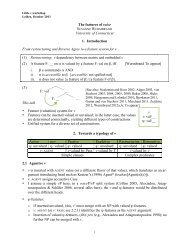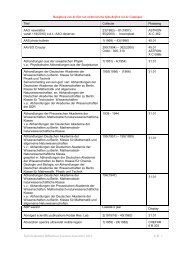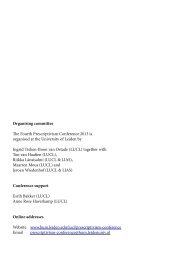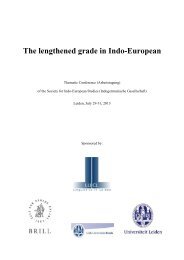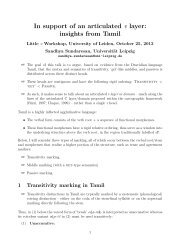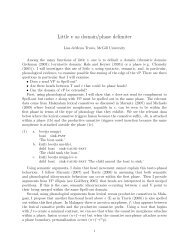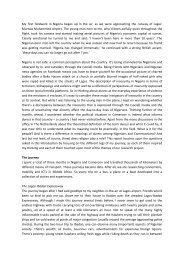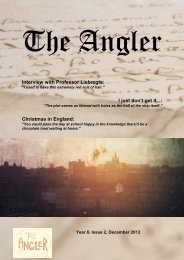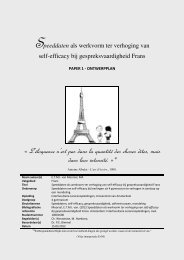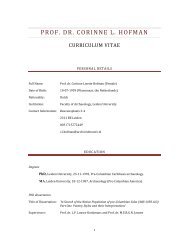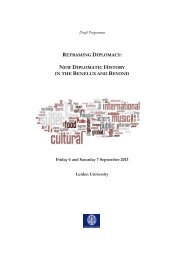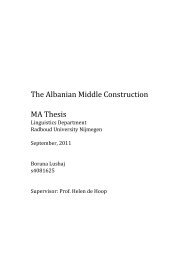Institute for History Annual Report 2010 - O - Universiteit Leiden
Institute for History Annual Report 2010 - O - Universiteit Leiden
Institute for History Annual Report 2010 - O - Universiteit Leiden
You also want an ePaper? Increase the reach of your titles
YUMPU automatically turns print PDFs into web optimized ePapers that Google loves.
Political Culture and<br />
National Identities<br />
Description<br />
<strong>Leiden</strong> has its own tradition in the field of political<br />
and national history. More than at other Dutch<br />
universities, research is conducted into the<br />
national, often political history of individual<br />
countries in Europe and beyond. Such a focus on<br />
national history is no longer common practice<br />
within the field. However, if this focus is problematised,<br />
it still remains a fruitful basis <strong>for</strong> a study of<br />
the past. The construction of national identities is<br />
not least a question of political action in the<br />
broadest sense of the word, and it there<strong>for</strong>e makes<br />
sense to study these matters in their relation to one<br />
another. This step seems all the more obvious if, in<br />
thinking of politics, we think primarily of political<br />
culture: on the one hand, the cultural aspects of<br />
the political realm itself, and on the other hand the<br />
broad social-cultural and cultural-intellectual<br />
embedding of politics. In both respects, political<br />
culture has to a large extent developed in national<br />
contexts and, conversely, ‘national identity’ is<br />
often simply another word <strong>for</strong> traditions in the<br />
field of political culture. Problematising ideas<br />
concerning national identity is also closely related<br />
to problematising the accepted assumptions about<br />
established politics. <strong>Leiden</strong> more than any other<br />
university offers an ideal environment <strong>for</strong> the<br />
study of this complex, due to the presence among<br />
<strong>Institute</strong> <strong>for</strong> <strong>History</strong><br />
55<br />
its historians of so many country specialists and<br />
specialists in the history of the European Union.<br />
The parallel presence of these specialisations does<br />
not automatically lead to collaboration. Among<br />
historians, it has long been a habit to concentrate<br />
on one country and to study this country in its<br />
unique characteristics (The German Sonderweg,<br />
Great-Britain versus the Continent, l’exception<br />
française, The Netherlands as an exception to the<br />
general human pattern, American exceptionalism,<br />
etc.), while the study of the history of Europe and<br />
European unification was effected in a separate<br />
area of research. In recent decades, an increasing<br />
amount of criticism has been voiced concerning<br />
the nationally-oriented historical tradition, and<br />
calls have been made <strong>for</strong> more comparative<br />
research. In practice, however, it proves to be far<br />
from easy <strong>for</strong> a historian (as opposed to, <strong>for</strong><br />
instance, a sociologist) to study history from a<br />
comparative perspective. Comparative history<br />
begins with placing a number of national cases<br />
side by side, but it is, of course, far more than that.<br />
Expertise in the field of national history will<br />
probably reach its full potential if, rather than<br />
concentrating on separate juxtaposed national<br />
cases, historians focus instead on the connections<br />
between them. To this end, the German and<br />
French history of ideas tradition has developed the<br />
concept of ‘culture transfer’, i.e. the adoption of<br />
<strong>for</strong>eign examples and the inspiration which they<br />
engender. This concept can easily be transferred to<br />
the political domain, <strong>for</strong> instance with regard to<br />
social movement, parties and parliaments, and the<br />
use of symbols and material objects. In the attempt



